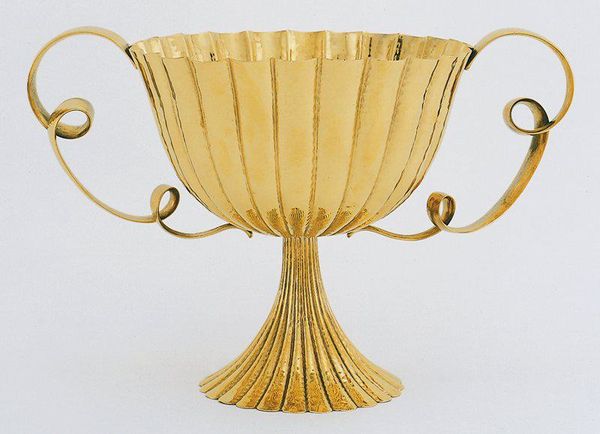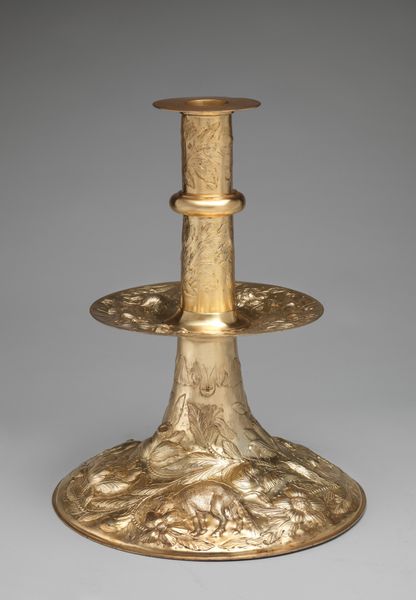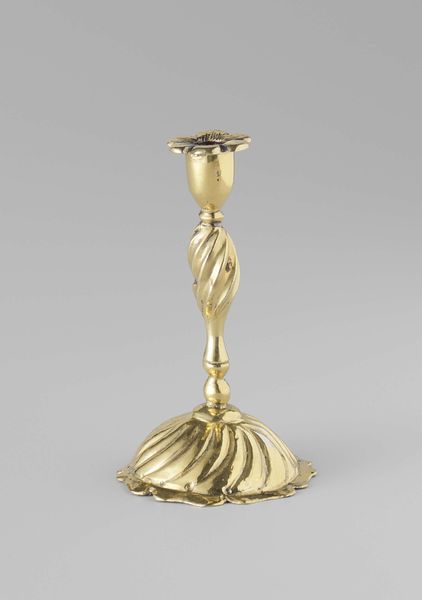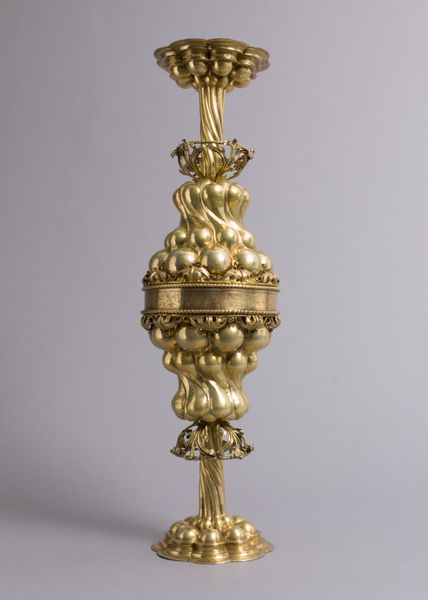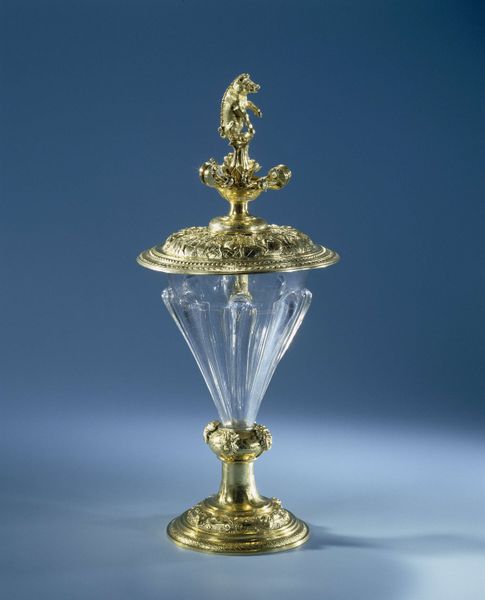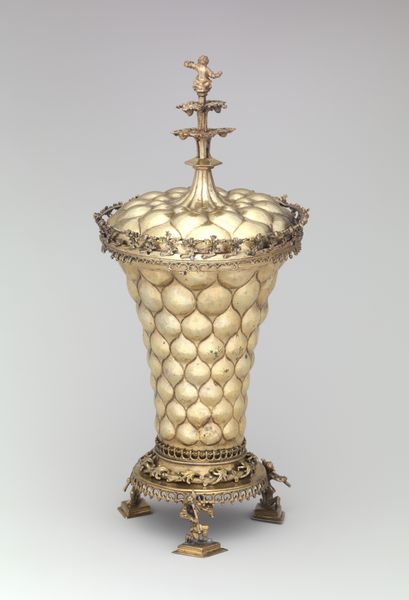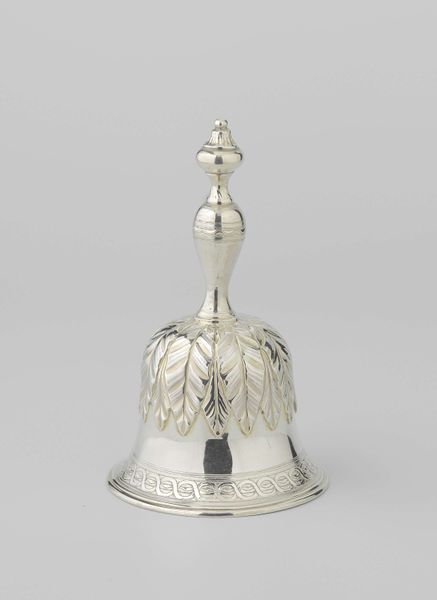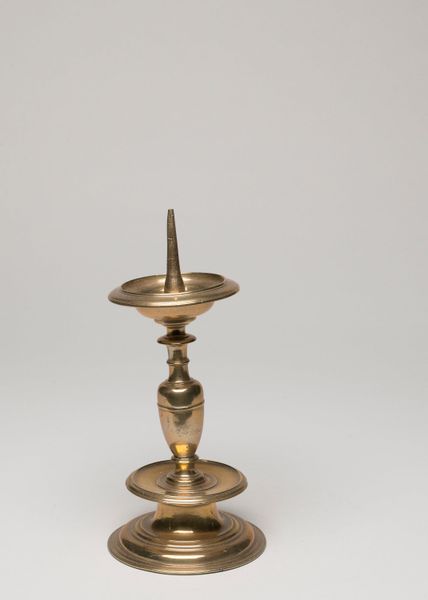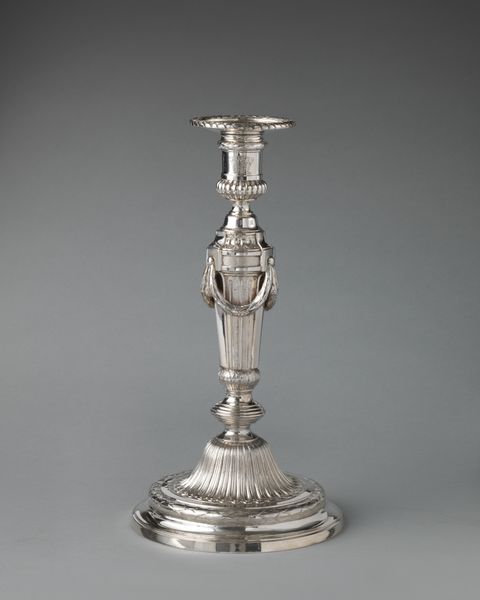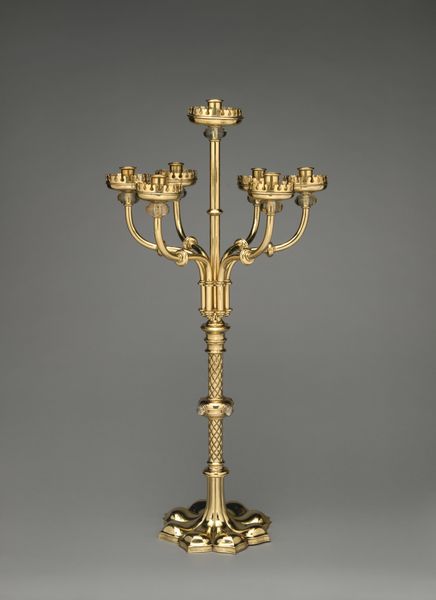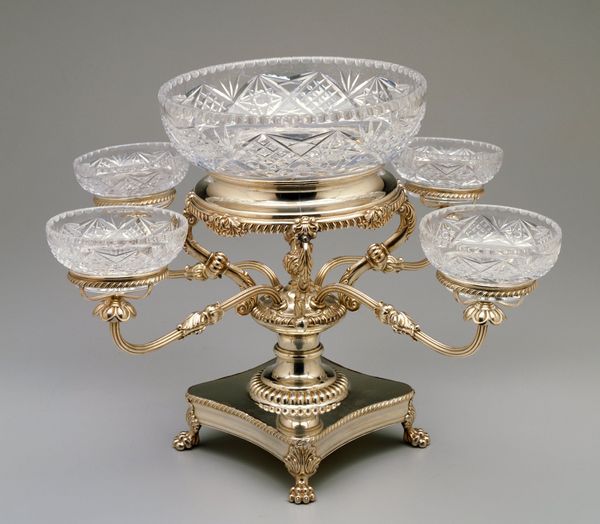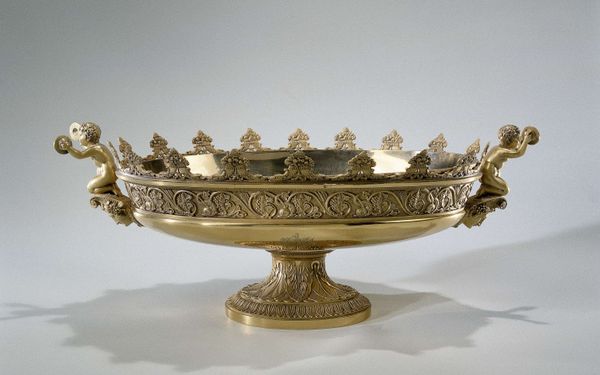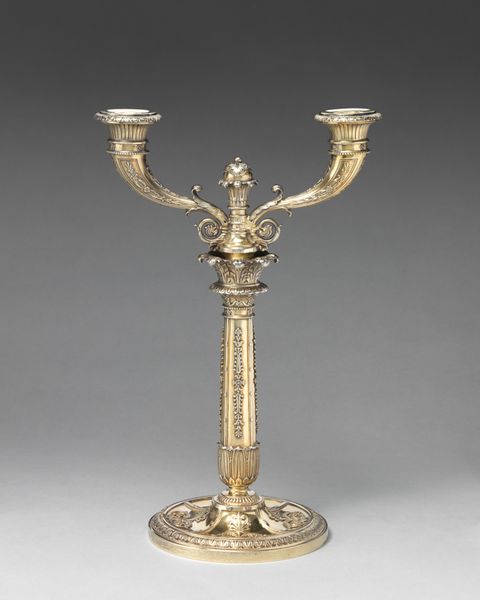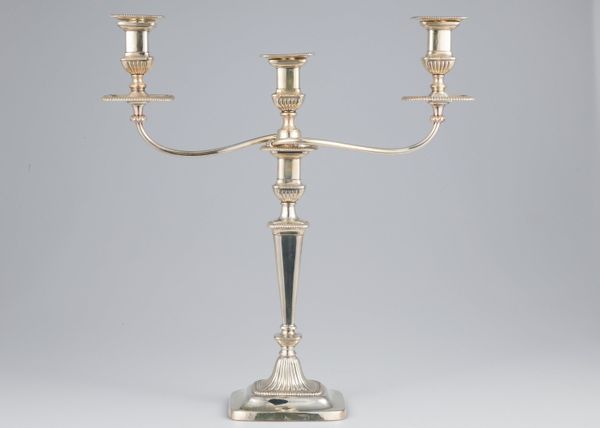
Candelabrum 1901
brunopaul
minneapolisinstituteofart
brass, metal, sculpture
art-nouveau
brass
metal
geometric
sculpture
ceramic
decorative-art
Bruno Paul's "Candelabrum" (1901) is a striking example of Art Nouveau design. The piece's organic, flowing lines and use of brass create a sense of elegance and refinement. The candelabrum features a central stem that branches out into eight curved arms, each holding a candle cup. The organic, almost floral, shape is characteristic of the Art Nouveau style, which sought to emulate nature's forms in its designs. The piece is currently held in the collection of the Minneapolis Institute of Art, and stands as a testament to Paul's influential contribution to decorative arts.
Comments
The ceremonial appearance and considerable size of this twelve-armed candelabrum make it among the most compelling of German Art Nouveau (Jugendstil) metalworks. The arms swivel around the central shaft forming a three-dimensional tree form or, as here, may be arranged with the arms in a row suggesting a stylized peacock. Designed in 1901, it was being sold in several sizes by the Vereinigte Werkstätte until at least 1914. To date, few versions of this candelabrum have been recorded.
Join the conversation
Join millions of artists and users on Artera today and experience the ultimate creative platform.
